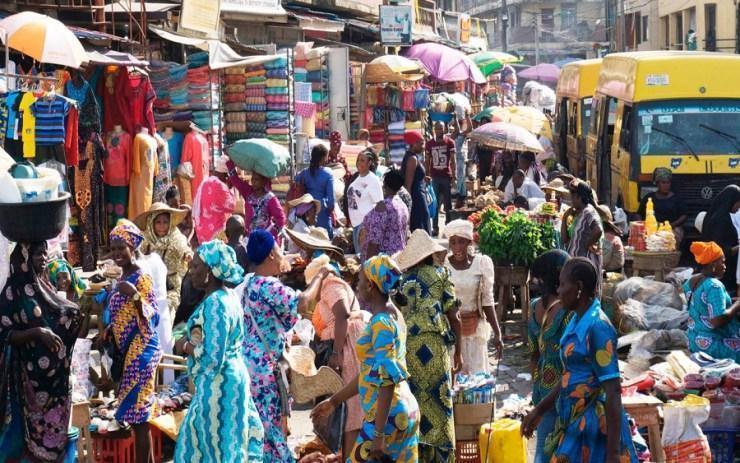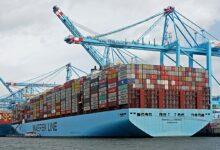
10 Factors Affecting Nigerian Economy
Factors Affecting Nigerian Economy – The Nigerian economy is the largest in Africa and the 21st largest in the world. It is primarily based on the oil and natural gas industry, which accounts for about 90% of the country’s export earnings and over 40% of its GDP. The country also has a growing agricultural sector and a rapidly developing services sector. However, despite its potential, Nigeria has struggled with economic instability and underdevelopment, due in part to corruption and mismanagement. The government has made efforts to diversify the economy and improve infrastructure, but progress has been slow.Information Guide Nigeria
Read only: 10 Factors That Influence Child Development
👉 Relocate to Canada Today!
Live, Study and Work in Canada. No Payment is Required! Hurry Now click here to Apply >> Immigrate to CanadaWhat is the Economy?
Economy refers to the production, distribution, and consumption of goods and services in a particular geographic region or country. It encompasses how society uses resources to meet its needs and wants. The study of the economy is known as economics.
What is the Nigerian Economy?
The Nigerian economy is the largest in Africa and is heavily dependent on its oil industry, which accounts for about 90% of government revenues. However, the Nigerian economy also includes the agriculture, manufacturing, and services sectors. The country has a growing population and a rapidly urbanizing society, which presents both challenges and opportunities for economic growth. Despite its potential, the Nigerian economy has faced several challenges in recent years, including widespread poverty, high unemployment, and corruption. The government has implemented many economic reform programs to address these issues and promote sustainable growth.Factors Affecting Nigerian Economy
Read Also: 10 Factors Affecting Business In Nigeria
Types of Nigerian Economy
There are several different ways to classify the Nigerian economy, but some common types include:
- Traditional Economy: This type of economy is characterized by subsistence farming and hunting, with little trade or exchange with outside markets. This economy is mainly found in rural areas of Nigeria.
- Agricultural Economy: Nigeria has a large agricultural sector, with crops such as yams, cassava, and corn being important staples. The country is also a major producer of oil palm and rubber.
- Petroleum-based Economy: Nigeria is a major oil-producing country and the petroleum sector accounts for a large portion of its GDP. The country is a member of OPEC and is Africa’s largest oil producer.
- Service-based Economy: The service sector is an increasingly important part of the Nigerian economy and includes industries such as banking, telecommunications, and transportation.
- Informal Economy: This is a sector of the economy that is not officially recognized or regulated by the government. It includes activities such as street vending, small-scale trading, and other small business activities.
- Emerging Economy: Nigeria is considered an emerging economy due to its large population, abundant natural resources, and growing middle class. With the right policies and investments, Nigeria has the potential to become one of the leading economies in Africa.
Read Also: 10 Factors Affecting Contraceptive Use in Nigeria
Advantages of the Nigerian Economy
- Rich Natural Resources: Nigeria has abundant oil reserves, as well as solid mineral deposits including tin, limestone, coal, and lead.
- Large and Growing Population: With a population of over 200 million, Nigeria has a large domestic market for goods and services.15 Best Industries in Nigeria
- Diversifying Economy: Nigeria’s economy is diversifying, with a growing non-oil sector, including telecommunications, banking, and consumer goods.
- Strong Agricultural Sector: Nigeria is one of the world’s largest producers of palm oil, yams, and rubber, and it also has a thriving livestock sector.
- Strategic Location: Nigeria’s geographic location makes it a key player in West Africa and a gateway to other markets in the region.
- Increasing Foreign Investment: With a stable political environment and improved economic policies, Nigeria is attracting more foreign investment.20 Best Gas Cookers Pictures and their Prices in Nigeria
The Impact of the Nigerian Economy and the Society
The Nigerian economy has a complex history, shaped by a variety of factors including colonialism, natural resources, and political instability. The country was colonized by the British in the late 19th century, and during this time, the economy was largely based on the export of primary commodities such as palm oil, rubber, and groundnuts.NYSC Portal
After Nigeria gained independence in 1960, the government implemented a series of policies aimed at diversifying the economy and promoting industrialization. However, these efforts were hindered by a lack of infrastructure and a series of military coups, and political instability.
In the 1970s, the discovery of large oil reserves transformed Nigeria into one of the world’s largest oil producers. However, the country’s reliance on oil exports led to a neglect of other sectors of the economy and a lack of diversification.JAMB Portal
👉 Relocate to Canada Today!
Live, Study and Work in Canada. No Payment is Required! Hurry Now click here to Apply >> Immigrate to CanadaIn the 1980s and 1990s, Nigeria experienced an economic decline due to a combination of falling oil prices, mismanagement, and corruption. In the 2000s, there were some signs of economic recovery, but growth has been uneven and poverty remains widespread.
In recent years, the Nigerian government has implemented a series of economic reforms aimed at diversifying the economy, improving infrastructure, and reducing corruption. However, progress has been slow, and the country continues to face significant economic challenges.JAMB Result
Read Also: 10 Factors Affecting Crop Production In Nigeria
Factors affecting the Nigerian Economy
There are a variety of factors that can affect the Nigerian economy. Some of the main ones include:200 romantic love message for her
- Oil Prices: Nigeria is a major oil-producing country, and fluctuations in oil prices have a significant impact on its economy.
- Political Instability: Nigeria has a history of political instability, which affect investor confidence and lead to economic uncertainty.
- Corruption: Corruption is a major problem in Nigeria, and it affects the economy by deterring foreign investment and undermining the effectiveness of government policies.
- Infrastructure: Nigeria’s poor infrastructure, particularly in the areas of transportation and power, is a major constraint on economic growth.
- Foreign Exchange: Nigeria’s economy is heavily dependent on oil exports, and fluctuations in the value of the Nigerian naira against foreign currencies can have a significant impact on the economy.
- Unemployment: Nigeria’s high unemployment rate is a major economic problem, and it is a major constraint on economic growth.
- Poverty: Nigeria has a high poverty rate, which affects the economy by reducing consumer spending and limiting the potential for economic growth.
- Inflation: High inflation makes it difficult for people to afford basic goods and services, and it can also lead to reduced economic growth.
- Education: The quality of education in Nigeria is poor, which affects the economy by limiting the potential for economic growth and reducing the number of skilled workers available.
- Demographic: Nigeria’s rapidly growing population is putting strain on the economy and government services. This affects the economy by reducing the potential for economic growth and increasing the demand for government services. 105 goodmorning messages
Read Also: 10 Factors Affecting COVID-19 Vaccine Acceptance In Nigeria
Conclusion
The Nigerian economy is the largest in Africa and has a diverse range of industries, including oil and gas, telecommunications, banking, and consumer goods. However, it also faces significant challenges, including corruption, infrastructure deficiencies, and a reliance on oil exports. The government has implemented economic reform plans in recent years, but progress has been slow and the country continues to struggle with high levels of poverty and unemployment. Overall, while the Nigerian economy has growth potential, it will require sustained and consistent efforts to address these challenges to achieve sustained economic development.
Check JAMB Result
Check and Confirm: How much is Dollar to Naira today





